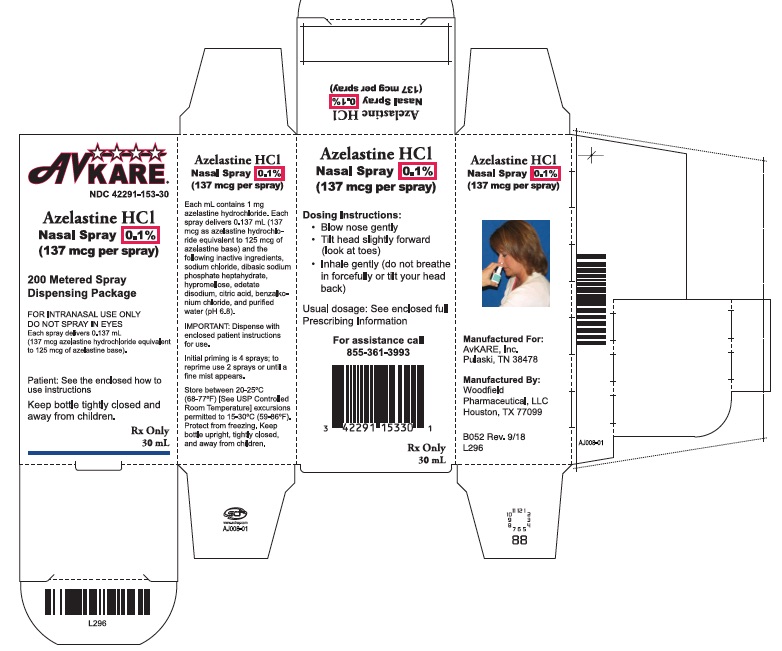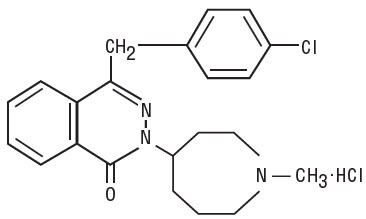Azelastine Hydrochloride | Avkare, Inc while Breastfeeding

What is Azelastine Hydrochloride | Avkare, Inc used for?
What are the risk associated with Azelastine Hydrochloride | Avkare, Inc usage while breastfeeding? What precautions shall I take while using it in breastfeeding?

Azelastine Hydrochloride | Avkare, Inc Breastfeeding Analsys
Azelastine hydrochloride while Breastfeeding
Low RiskCAS Number: 58581-89-8
Second generation anti-histaminic drug with low sedative effect. Used for ophthalmic and nasal topical administration. On last update no relevant published data related to breastfeeding were found. A small dose together with a low plama level of most nasal and ophthalmologic compounds make that a significant excretion into breast milk would be unlikely.
Azelastine Hydrochloride | Avkare, Inc Breastfeeding Analsys - 2
Azelastine hydrochloride while Breastfeeding
CAS Number: 58581-89-8
Small occasional doses of azelastine nasal spray would not be expected to cause any adverse effects in breastfed infants. Larger doses or more prolonged use of the nasal spray may cause drowsiness and other effects in the infant or decrease the milk supply, particularly in combination with a sympathomimetic such as pseudoephedrine or before lactation is well established. Infant rejection of the breast might occur because of the bitter taste of the drug. The oral, nonsedating antihistamines are preferred alternatives. Because absorption from the eye is limited, azelastine would not be expected to cause any adverse effects in breastfed infants. To substantially diminish the amount of drug that reaches the breastmilk after using eye drops, place pressure over the tear duct by the corner of the eye for 1 minute or more, then remove the excess solution with an absorbent tissue.

What if I already have used Azelastine Hydrochloride | Avkare, Inc?
Azelastine Hydrochloride | Avkare, Inc is in the category of low risk, if you have already used it then its not a big deal if health and behavior of baby is good. However your health care provider shall be aware of the fact that you have used Azelastine Hydrochloride | Avkare, Inc so you should inform him based on your convenience.
I am nursing mother and my doctor has suggested me to use Azelastine Hydrochloride | Avkare, Inc, is it safe?
Though Azelastine Hydrochloride | Avkare, Inc dose not comes in category of safe drugs rather it comes in category of low risk but if your doctor is aware that you are breastfeeding your baby and has still recommended it then its advantages must be outweighing the risks.
If I am using Azelastine Hydrochloride | Avkare, Inc, will my baby need extra monitoring?
Not much monitoring required while using Azelastine Hydrochloride | Avkare, Inc
Who can I talk to if I have questions about usage of Azelastine Hydrochloride | Avkare, Inc in breastfeeding?
US
National Womens Health and Breastfeeding Helpline: 800-994-9662 (TDD 888-220-5446) 9 a.m. and 6 p.m. ET, Monday through Friday
UK
National Breastfeeding Helpline: 0300-100-0212 9.30am to 9.30pm, daily
Association of Breastfeeding Mothers: 0300-330-5453
La Leche League: 0345-120-2918
The Breastfeeding Network supporter line in Bengali and Sylheti: 0300-456-2421
National Childbirth Trust (NCT): 0300-330-0700
Australia
National Breastfeeding Helpline: 1800-686-268 24 hours a day, 7 days a week
Canada
Telehealth Ontario for breastfeeding: 1-866-797-0000 24 hours a day, 7 days a week
